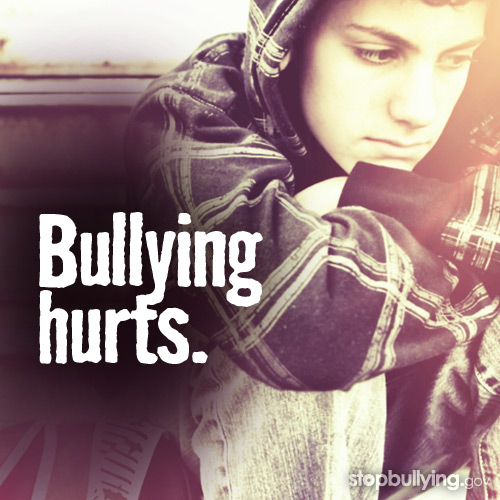
As parents, we certainly hope that back to school doesn’t mean back to bullying!
Unfortunately, being bullied at school is the reality for too many children. According to the National Crime Prevention Council, “Bullying has become a tidal wave of epic proportions.”
Everyone’s role
In her book The Bully, the Bullied, and the Bystander: From Preschool to HighSchool – How Parents and Teachers Can Help Break the Cycle, Barbara Coloroso explains:
Breaking the cycle of violence involves more than merely identifying and stopping the bully. It requires that we examine why and how a child becomes a bully or a target of a bully (and sometimes both) as well as the role bystanders play in perpetuating the cycle. A deadly combination is a bully who gets what he wants from his target; a bullied child who is afraid to tell; bystanders who either watch, participate in the bullying, or look away; and adults who discount bullying as teasing, not tormenting.
When your child is the bully
If your child has bullied someone, it’s important to help him build his skills so that he finds better ways of acting in the future. Punishing him by grounding him or taking away privileges may only encourage him to avoid being caught in the future.
Instead, ask him to write about what happened or discuss it together:
- What was the sequence of events that happened?
- What influenced your actions?
- What will you do differently next time so this doesn’t happen again?
- What type of amends do you think you should make?
- How will you reconcile with the person you’ve hurt?
Struggling to answer these tough questions can help kids learn from their poor choices. While they may be tempted to blame others for their actions, the goal is for them to realize their own role in the situation and take responsibility for the results of their actions.
Children who bully were often bullied themselves. One divorced mom told me how her 12-year-old son one day was beaten by his dad. The following week she received three calls from the school regarding her son bullying other kids. Since he had never been involved in any bullying activity before, she connected it to his recent experience with his dad and helped him find better ways to respond.
When your child is being bullied
If your child comes to you distraught because he was bullied, listen and show compassion. Work to understand your child’s perspective on the situation without immediately trying to solve it. Make sure your child receives the message that you love him, believe in him, accept him and understand his feelings.
In the heat of the moment, this is far easier said than done. Tina and Ron Meier tell the devastating story of their 13-year-old daughter, Megan. She came to them upset because of horrible things a boy said to her on MySpace.
In an interview on CNN, Tina tearfully explained her reaction to Megan:
This is the part I’ll never forgive myself for, because she was looking for me to help calm her down like I normally did and be there for her. I was upset with her, because I didn’t like the language she was using and I was upset that she didn’t listen to me and sign off when I told her to. And so, I was aggravated about that and told her she knew better. She just said to me ‘You’re supposed to be my mom. You’re supposed to be on my side.’ and she took off running upstairs.
A little while later Tina went upstairs to talk to Megan and found her hanging from her closet. Megan died the next day.
This tragic story can help remind all of us that bullied children are in a fragile state of mind. They need love and acceptance now more than ever.
Unlike Megan, most children who are bullied do not tell their parents. Have you noticed that your child doesn’t want to go to school or is exhibiting other unusual behavior? If so, bring up the topic with something like, “I noticed that you haven’t wanted to go to school lately. What’s going on?” Keep asking questions until you feel you really understand.
If you find out your child has been bullied, you can:
- Help your child think through ways of getting away from the bully.
- Meet with your child’s teachers or counselor. Develop a plan for keeping your child safe, particularly during
- vulnerable times like lunch, recess and going to and from school.
- Find out your school’s anti-bullying policy.
- Contact police or a school resource officer if the actions are criminal.
- Visit Stop Bullying Now which provides information from various government agencies on what bullying is, what cyberbullying is, who is at risk, and how you can prevent and respond to bullying.
When your child is the bystander
Children who watch someone being bullied are also affected by the bullying. They may not intervene on behalf of the victim because they are afraid or aren’t sure what to do.
You can help your children think through these situations, feel empathy for the victim and discuss appropriate ways to help the victim. Developing the courage to stand up for victims isn’t easy. Raise your children to show compassion to others and help make the world a better place for everyone.
You play an important role in guiding your children to treat everyone with respect and dignity. Teaching children these values will help reduce bullying in schools.
For one-stop access to U.S. Government information on bullying topics, visit @StopBullying.Gov on Twitter, Facebook or StopBullying.Gov.
Image source: StopBullying.Gov.
This Week's Articles Read, learn, live
-
 Summertime grilled vegetables
Summertime grilled vegetables
-
 5 Ways to make this summer full of unforgettable family fun
5 Ways to make this summer full of unforgettable family fun
-
 10 Reasons to take a family vacation in Puerto Vallarta
10 Reasons to take a family vacation in Puerto Vallarta
-
 5 Fun tips for spring cleaning with kids
5 Fun tips for spring cleaning with kids
-
 10 chick flicks with New Year’s Eve scenes
10 chick flicks with New Year’s Eve scenes
-
 The day after Christmas: 5 ways to handle the biggest downer of the year
The day after Christmas: 5 ways to handle the biggest downer of the year